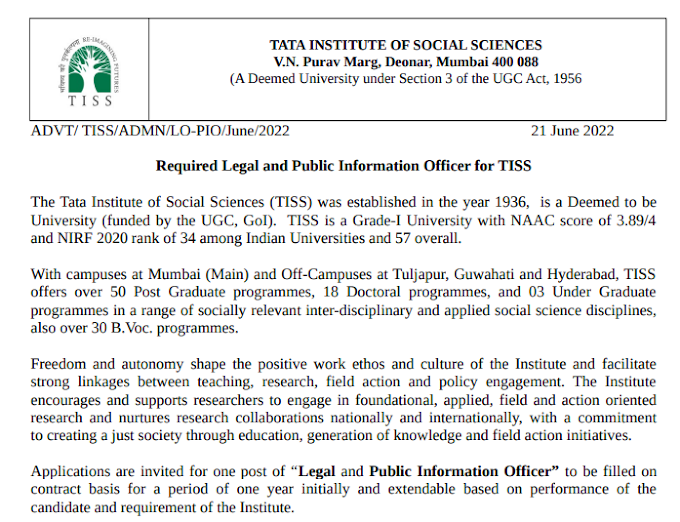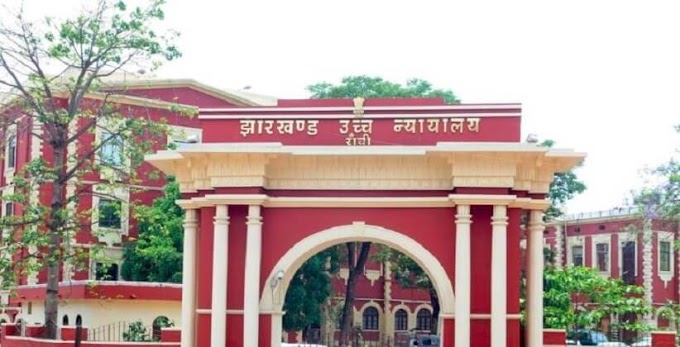RESEARCH UNIT
Indira Gandhi National Open University
Maidan Garhi,
New Delhi-110 068
www.ignou.ac.in
Candidates are required to apply online only. The
Online Link for PhD Entrance Portal is as under :
Eligibility criteria for admission to Ph.D programme are as follows:
Master's Degree from a University recognized by UGC in the relevant discipline with
atleast 55% marks [50%marks in the case of SC,ST and OBC(Non-creamy
Layer)/Differently-Abled and other categories of candidates as per the decision of UGC
from time to time, or for those who had obtained their Master's Degree prior to19th
September,1991] excluding grace marks.
GENERAL INFORMATION
- Entrance Test is compulsory for all candidates applying for admission to Ph.D Programme.
- Admission to the Ph.D Degree Programme is strictly on merit, based on the performance in the Entrance Test and Interview.
- The syllabus of the Entrance Test shall be as per the ‘University Grants Commission (Minimum Standards and Procedures for Award of MPhil / PhD Degrees) Regulations, 2016 consisting of 50% of Research methodology and 50% subject specific.
- The question paper shall have total 100 questions consisting of 50% on research methodology and 50% on specific subject.
- All the questions shall be Multiple Choice questions (MCQ) with 4 options and only one correct answer. There shall be no negative marking.
- The Entrance Test shall have a 70% weightage and 30% weightage shall be given to the interview/viva.
- IGNOU offers Ph.D programme under two categories: Part time and Full time. Both categories of students will be required to attend classes, if course work is allotted to them.
Important Dates
Last date for submission of online application - 23rd March, 2020
Entrance Test - 29th April, 2020
Declaration of Entrance Result – 8
th May, 2020
Syllabus for Entrance Test
PhD in Law (PHDLE)
Part A- Research Methodology
1. (a)Nature of Research
What is Research?
Relevance of Legal Research
Objective of Legal Research.
Need for Legal Research and Importance of inter-disciplinary approach.
Significance of Legal Research in India.
Legal Research as a profession in India.
(b)Types of Research
Doctrinal or Traditional Research.
Non-doctrinal or Empirical Research.
Descriptive and Analytical Research.
Applied and Fundamental Research.
Qualitative and Quantitative Research.
Law Reform Research.
Historical Research.
Sociological Research.
2.Research Processes
Identification of Research Problems.
Review of Literature.
Selection of a Research Problem
Formulation of a Hypothesis.
Research Design.
Hypothesis
3. Research Methods and tools for collection of data
1) Primary Data method.
Experimental and Participatory/ Scientific Method.
Case Study Method.
Survey Method.
Discussion Method.
Observation Method.
Interview Method.
Mail Survey Method.
Questionnaire (Open ended and Close ended)
Pilot Study Method.
2) Secondary Data Method.
Case Law Method.
Cumulative Record Cards.
3) Tabulation and Evaluation of Data.
4. Sampling
Advantages and Limitations of Sampling.
Theoretical basis of Sampling
o Probability and Non- probability Sampling
Classifications of sampling
o Simple Random Sampling
- o Stratified Sampling
- o Cluster Sampling o Systematic Sampling
- o Non- random sampling
- o Purposive Sampling
- o Convenience Sampling
- o Judgment Sampling
Sampling and Non- sampling Error.
5. Analysis and Interpretation of Data
Application of Content Analysis in Legal Research.
Analysis of aggregate Data.
Data Interpretation.
Legal input Analysis, the ideal and the practicable.
Data Processing- Summarizing of data, Codification and Tabulation.
Writing a Research Report- Types, Contents and steps involved in drafting of a Report.
6. Scientific Tools in Research
Jurimetrics.
Use of SPSS and other packages in Legal research.
Avoiding/Detecting plagiarism.
Writing the research report/Bibliography/Presentation styles
7. Other Legal Research Strategies:
Legislative materials including subordinate legislation, notification and policy statements.
Decisional material including foreign decisions; methods of discovering the "rule of the case" -
tracing the history of important cases and also to ensuring that the case had not been overruled.
Survey of juristic literature/ writings and its importance in selecting research problem.
Compilation of list of reports used or special studies conducted relevant to the problem.
Finding Material in a Law Library: Books, Journals, Law Reports and Digests of cases ,
Acts, Index to Periodicals.
Mode of Citation and Bibliography: Author- date System, Footnote and Endnote System,
Citing for the First Time, Subsequent citing, List of Abbreviations Used in Citation,
Bibliographical Entries, The Blue book - A Uniform System of Citation.
Part B – Law
1. Constitutional Law of India
Preamble
Fundamental Rights and Duties.
Directive Principles of State Policy.
Judiciary.
Executive.
Union State Legislative Relations.
Emergency Provisions.
Amendment to the Constitution of India.
Writ Jurisdiction.
2. Legal Theory
Nature and Source of Law.
Positivism, Natural Law Theory, Sociological Jurisprudence.
Theories of punishment.
Rights and Duties.
Concepts of Possession and Ownership.
Judicial Process and Social Transformation.
Judicial Activism.
Social Justice.
3. Public International law
Nature of International Law and its relationship with municipal law.
Sources of International law
Recognition of states and governments.
United Nations.
Settlement of International Disputes.
Human rights.
4. Law of Contracts: General Principles
Essentials of a valid contract.
Offer, acceptance and consideration.
Capacity to Contract: Minor’s contract.
Elements vitiating contract: Mistake, fraud, misrepresentation, public policy,
coercion, undue influence, frustration of contract.
Remedies for breach of contract: Damages
5. Law of Crimes: General Principles
Nature and Definition of Offence.
General Exceptions
Common Intention and Common Object.
Criminal Attempt, Conspiracy and Abetment.
Offences against Women and child
6. Law of Torts
Foundation of Tortuous Liability.
General Defences to an action of Tort.
Vicarious Liability
Remoteness of Damages.
Negligence
Absolute and Strict Liability.
7. Environmental law
Concept of Environment- Meaning of Environment and Environmental Pollution
Environment law for the Prevention and Control of Environmental Pollution in India
:
- o The Water ( Prevention and Control of Pollution) Act 1974;
- o The Air ( Prevention and Control of Pollution) Act 1981;
- o Wildlife protection Act,1972
- o Environment protection Act, 1986.
International Development for protection of Environmental Pollution.
Remedies for Environmental Protection: Civil, Criminal and Constitutional.
Environmental impact assessment and control of Hazardous wastes.








